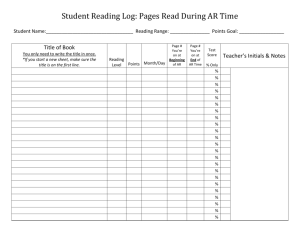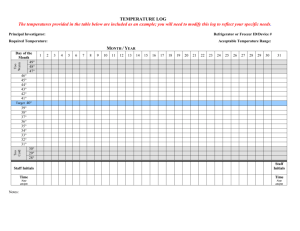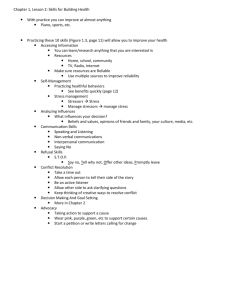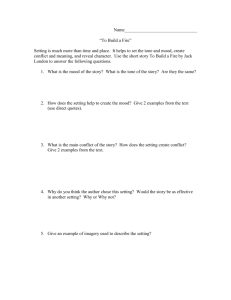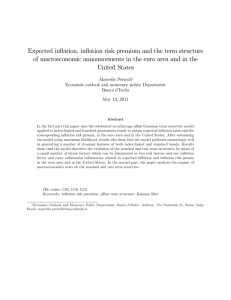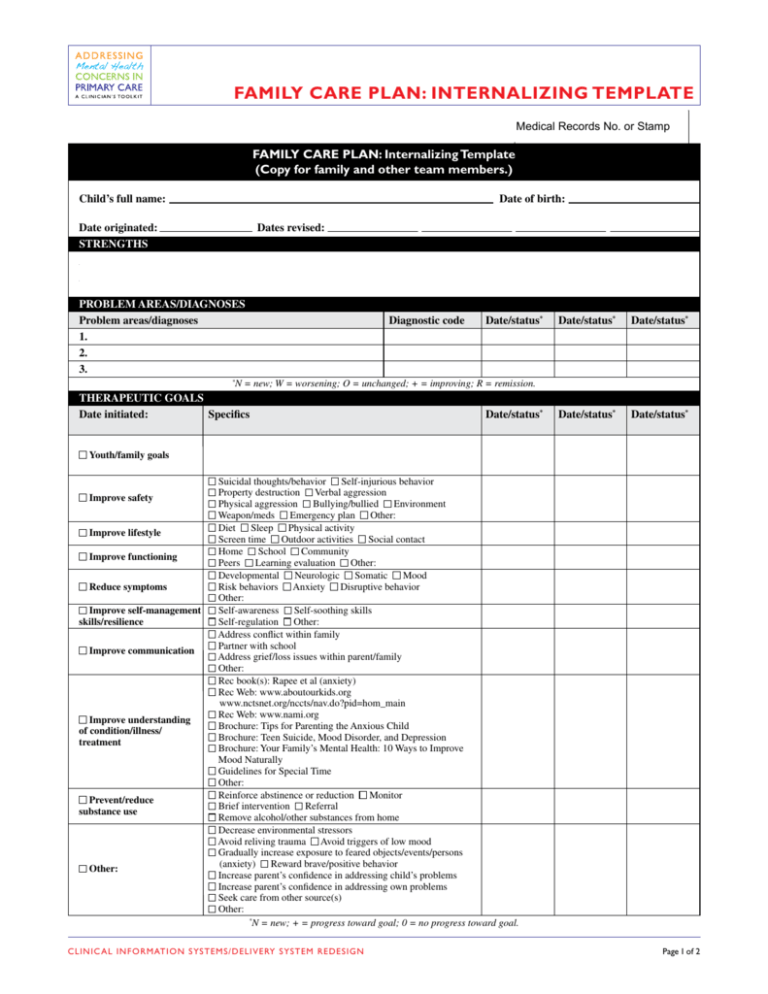
FAMILY CARE PLAN: INTERNALIZING TEMPLATE
Medical
Records
Medical
RecordNo.
No.ororStamp
Stamp
FAMILY CARE PLAN: Internalizing Template
(Copy for family and other team members.)
Child’s full name:
Date of birth:
Date originated:
STRENGTHS
Dates revised:
PROBLEM AREAS/DIAGNOSES
Problem areas/diagnoses
1.
2.
3.
*
Diagnostic code
Date/status*
Date/status*
Date/status*
Date/status*
Date/status*
N = new; W = worsening; O = unchanged; + = improving; R = remission.
THERAPEUTIC GOALS
Date initiated:
Specifics
Date/status*
Youth/family goals
Improve safety
Improve lifestyle
Improve functioning
Reduce symptoms
Improve self-management
skills/resilience
Improve communication
Improve understanding
of condition/illness/
treatment
Prevent/reduce
substance use
Other:
Suicidal thoughts/behavior
Self-injurious behavior
Property destruction Verbal aggression
Physical aggression
Bullying/bullied
Environment
Weapon/meds
Emergency plan
Other:
Diet
Sleep
Physical activity
Screen time
Outdoor activities
Social contact
Home
School
Community
Peers
Learning evaluation
Other:
Developmental
Neurologic
Somatic
Mood
Risk behaviors Anxiety
Disruptive behavior
Other:
Self-awareness
Self-soothing skills
Self-regulation
Other:
Address conflict within family
Partner with school
Address grief/loss issues within parent/family
Other:
Rec book(s): Rapee et al (anxiety)
Rec Web: www.aboutourkids.org
www.nctsnet.org/nccts/nav.do?pid=hom_main
Rec Web: www.nami.org
Brochure: Tips for Parenting the Anxious Child
Brochure: Teen Suicide, Mood Disorder, and Depression
Brochure: Your Family’s Mental Health: 10 Ways to Improve
Mood Naturally
Guidelines for Special Time
Other:
Reinforce abstinence or reduction
Monitor
Brief intervention
Referral
Remove alcohol/other substances from home
Decrease environmental stressors
Avoid reliving trauma Avoid triggers of low mood
Gradually increase exposure to feared objects/events/persons
(anxiety)
Reward brave/positive behavior
Increase parent’s confidence in addressing child’s problems
Increase parent’s confidence in addressing own problems
Seek care from other source(s)
Other:
*
N = new; + = progress toward goal; 0 = no progress toward goal.
C L I N I C A L I N F O R M ATION SYSTEMS/DELIVERY SYSTEM REDESIGN
Page 1 of 2
FAMILY CARE PLAN: INTERNALIZING TEMPLATE
TYPES OF THERAPY AND SUPPORT
Provider/organization/
Name/phone Type of care or role*
family member
Parents
Child care/school personnel
Patient
Mental health
professional(s)
Primary care clinician
Date/status*
Date/status*
Date/status*
Rewards for good/brave behavior
Special time
Decrease stressors
Natural mental health improvements
Remove weapons/meds
Other:
Decrease stressors
Communicate with parents/child
Other:
Lifestyle
Reading
Self-management
Exposure plan (fears)
Relaxation
Journal
Positive thinking
Problem-solving
Practice skills
Behavioral activation
Other:
Psychosocial therapy
Med
Other:
Care coordination
Med
Facilitate referral(s)
Other:
Agency/other
I = individual therapy; F = family therapy; G = group therapy; SA = substance abuse therapy; MHCM = mental health case management;
M = mentor program; P = peer support; Med = medication; CC = care coordination through primary care; O = other (specify).
*
MEDICATIONS
Name
Purpose
See Psychopharmacologic Medication Flow Sheet.
Side effects to monitor
Dates dose changed
Labs:
Dates:
FOLLOW-UP
Next appointment
Emergency contact
Clinician’s signature/date:
Initials/date reviewed:
Parent/guardian signature/date:
Initials/date reviewed:
Youth’s signature/date:
Initials/date reviewed:
The recommendations in this publication do not indicate an exclusive course of treatment or serve as a standard
of medical care. Variations, taking into account individual circumstances, may be appropriate. Original document
included as part of Addressing Mental Health Concerns in Primary Care: A Clinician’s Toolkit. Copyright © 2010
American Academy of Pediatrics. All Rights Reserved. The American Academy of Pediatrics does not review or
endorse any modifications made to this document and in no event shall the AAP be liable for any such changes.
C L I N I C A L I N F O R M ATION SYSTEMS/DELIVERY SYSTEM REDESIGN
Page 2 of 2

